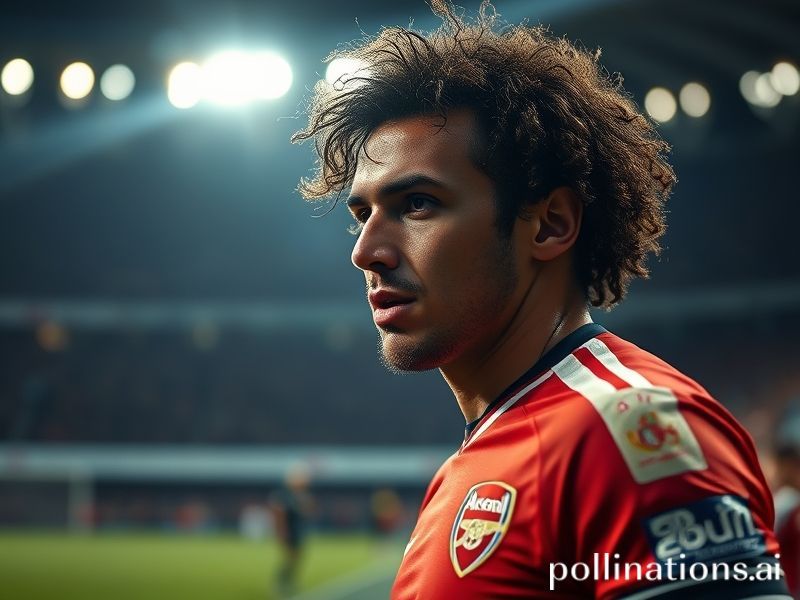David Luiz: The Brazilian Defender Who Turned Global Football into Beautiful Chaos
**The Last Samurai of Stamford Bridge: David Luiz and the Beautiful Art of Controlled Chaos**
In the grand theater of global football, where Brazilian flair meets European pragmatism with all the grace of a diplomatic summit gone wrong, David Luiz stands as perhaps the last romantic—a defensive midfielder trapped in a center-back’s body, or perhaps vice versa. While the world debates whether football has become too tactical, too sterile, too corporate, the curly-haired enigma from São Paulo continues to treat defending like interpretive dance performed on a tightrope strung over the Grand Canyon.
From the favelas of Brazil to the pristine pitches of the Premier League, Luiz’s career reads like a meditation on globalization’s absurdities: a player who embodies Brazilian football’s creative soul while simultaneously representing everything European clubs crave in their quarterly reports. His transfer fees alone—£50 million to Paris Saint-Germain, £34 million back to Chelsea—could fund a small nation’s education budget, yet here we are, treating these numbers as perfectly reasonable exchanges for a man whose defensive style suggests he might be playing an entirely different sport than his teammates.
The international implications of David Luiz extend far beyond football’s increasingly absurd economy. In an era where nations weaponize sports for soft power, where Qatar buys PSG and Saudi Arabia purchases Newcastle, Luiz represents something almost quaint: a player whose value lies not in his marketability to authoritarian regimes, but in his ability to make 90 minutes of organized running feel like jazz improvisation. While other Brazilian exports get absorbed into the European machine, grinding out results with mechanical efficiency, Luiz continues to defend with the reckless abandon of someone who understands that life, like football, is temporary and probably meaningless anyway.
His philosophical approach to defending—equal parts Socrates and street performer—has influenced a generation of defenders across continents. From the academies of Rio to the training grounds of Lisbon, young players now grow up believing that launching 40-yard diagonal passes while completely abandoning their defensive position isn’t just acceptable, it’s art. The butterfly effect of this mentality shift has given managers worldwide premature gray hair and launched a thousand think pieces about “the death of defending,” as if defending were ever truly alive in the first place.
The geopolitical symbolism hasn’t been lost on anyone paying attention. When David Luiz stands over a free-kick, 30 yards from goal, weighing up whether to attempt a shot that has roughly the same probability of success as Middle East peace talks, he’s not just taking a football action—he’s making a statement about risk, about beauty, about humanity’s eternal struggle between pragmatism and poetry. His career arc mirrors Brazil’s own journey from football’s spiritual home to just another market participant, selling its cultural heritage by the pound while pretending this constitutes progress.
As Luiz enters the twilight of his career, moving through clubs with the restless energy of someone searching for meaning in an increasingly absurd universe, his legacy becomes clearer. Not the trophies or the transfer fees or even the YouTube compilations set to emotional music, but the reminder that sport, like life, doesn’t always need to make sense. In a world growing more algorithmic by the day, where every decision is data-driven and every movement optimized, David Luiz remains beautifully, defiantly human—capable of both transcendent brilliance and catastrophic failure, often within the same 30-second sequence.
Perhaps that’s his greatest gift to global football: the courage to be imperfect in an age that demands perfection, to find joy in chaos when the world craves order, to remind us that we’re all just making this up as we go along, hoping nobody notices we’re defending life’s empty net with nothing but optimism and questionable positioning.







